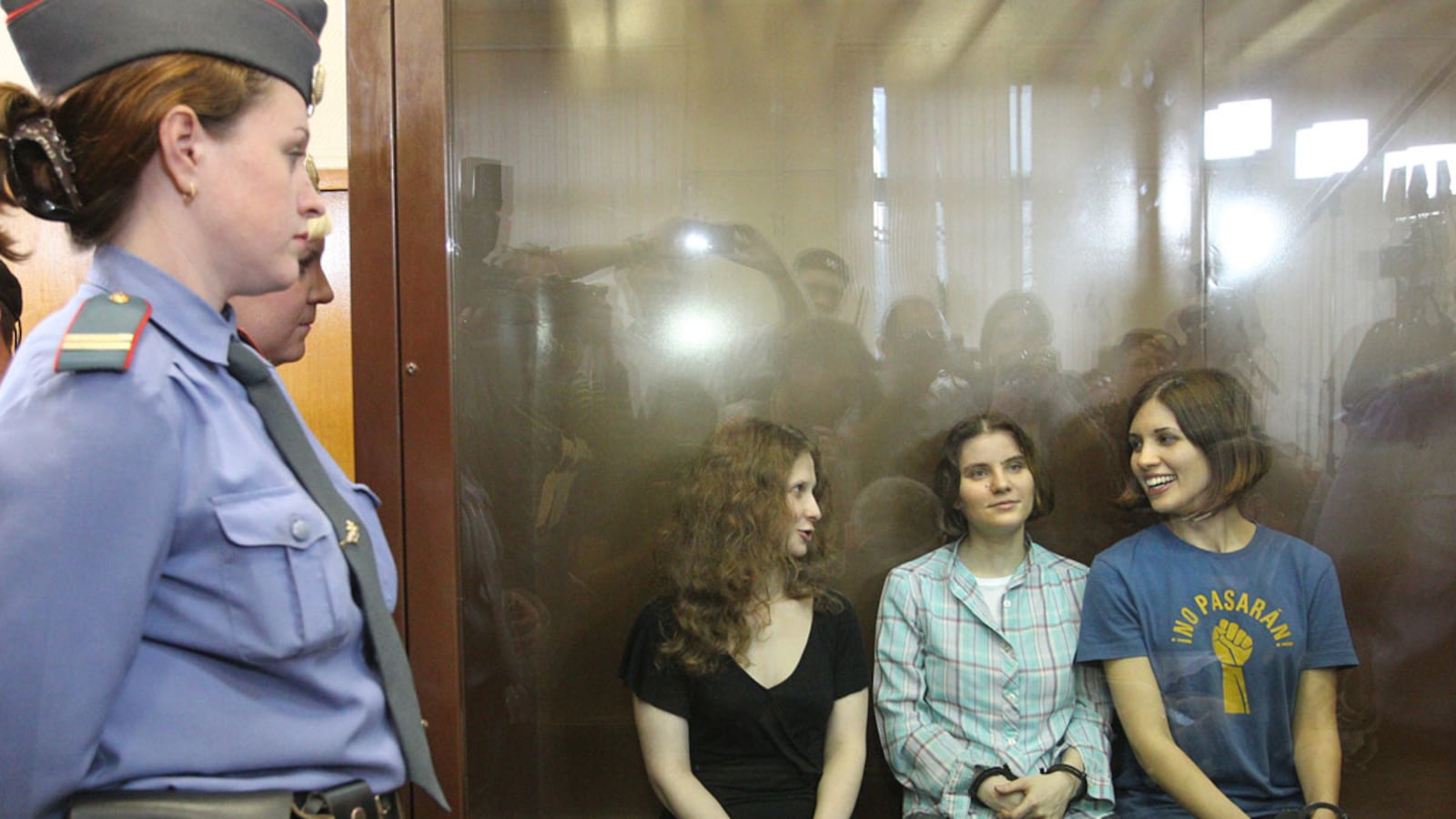In the end, neither Madonna’s prayer nor Paul McCartney’s letter to President Putin was any help. On Friday the trio of Russian feminist punk performance artists known as Pussy Riot were sentenced by a Moscow court to two years in prison.

And Maria Alyokhina, Yekaterina Samutsevich, and Nadezhda Tolokonnikova’s crime—a 1-1/2-minute “punk prayer” performed at the holiest place in the Russian Orthodox Church asking the Virgin Mary to expel Putin from the Kremlin—wasn’t answered with a miracle. Putin is still in power, though sending the young women to prison has tainted his reputation further and brought Pussy Riot worldwide fame.
As the guilty verdict was read, crowds of protesters filled the Moscow streets near the court chanting “Free Pussy Riot!” Colorful balaclavas appeared across the city center on monuments to Lomonosov, Pushkin, and his wife Goncharova, while in London a hail of stones pinged against the Russian Embassy building.
“By putting modern art performers behind bars, Putin set the parameters for limiting freedom of expression and signaled a powerful crackdown on civil society,” said Human Rights Watch’s Rachel Denber, in Moscow observing the case, as she watched police detain dozens of protesters outside the courthouse.
Hailed in the West as “sheroes” for braving a repressive society, Pussy Riot has infuriated the Kremlin for months. Deputy Prime Minister Dmitry Rogozin called Madonna “a slut” for supporting the punk band, and Chechen President Ramzan Kadyrov, who has said he believes Putin was sent to Russia by God, compared the girls to “pigs.”
But there is little doubt the group’s church stunt was provocative and deeply offensive to Russian believers. Senior clerics in the church and members of Putin’s government have hinted that the women could not have thought up the act on their own and suggest a sinister plot involving foreign governments and the media. “Putin has been under colossal pressure from a well-planned, anti-Russian campaign focused on discrediting the institution of the Russian church and weakening the Russian people,” said Sergei Markov, a pro-Kremlin political expert and deputy rector of Plekhanov University.
Inside the courtroom, the three women who challenged Putin and the Russian Orthodox Church looked hardly taller than 5 feet and appeared pale and exhausted after five months behind bars. They smiled as they heard the words “guilty” and “hooliganism motivated by religious hatred.” Alekhina, Samutsevich, and Tolokonnikova had said earlier in court that they believe in God but hate the idea of Russian Patriarch Kirill’s endorsing Putin’s candidacy earlier this year.
In the three months since he returned to the presidency, Putin has directed at least 19 political cases to the Russian courts and allowed the Parliament to toughen laws on street protesters, foreign-funded NGOs, and criminal libel against journalists, a bill that even his political ally Dmitry Medvedev once vetoed. Pussy Riot had feared the worst. “Virgin Mary save us from Putin!” is a crucial line in one of their songs. Says Yevgenia Rakina, another member of the band: “I am convinced that Putin is afraid the Virgin Mary will actually take his power away from him.”






